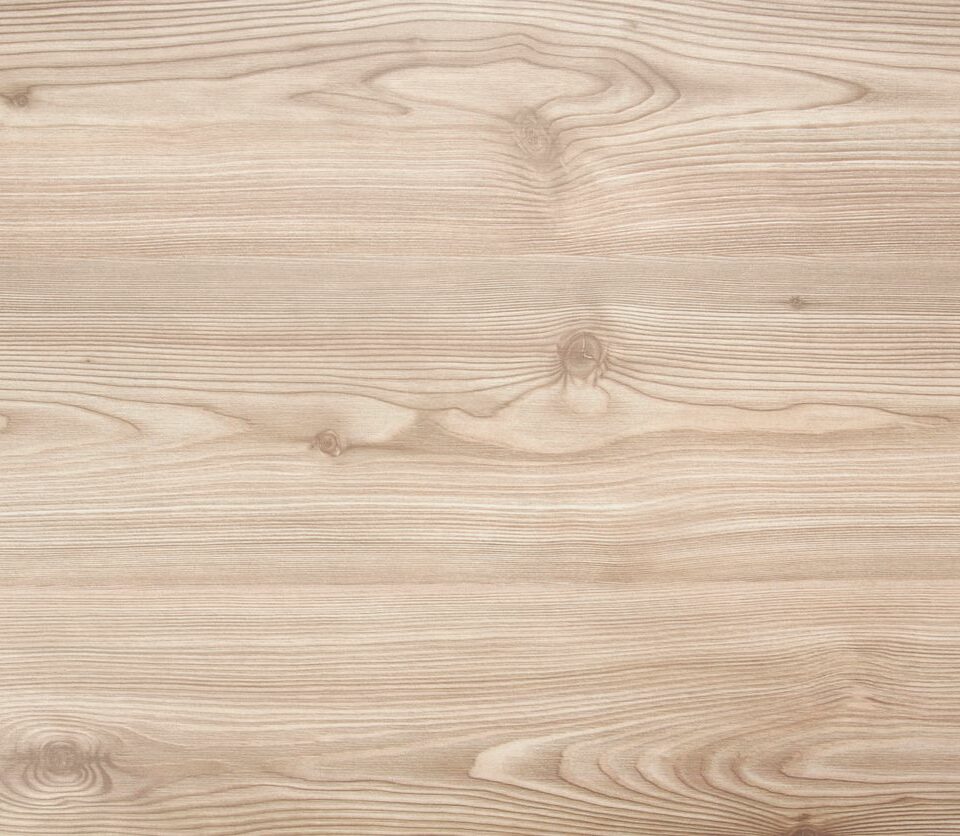Had they been there all night? she wondered as she tiptoed round them and headed for the sink. Filling half the kettle with icy water, she looked out through the window and tried to lock her eyes onto something that would keep her attention.
‘What do you think?’ asked her mother.
‘About what?’ replied the daughter, watching next door’s cat patrol the top of the fence. When their eyes met, the cat stopped to unfurl its black tail as it pondered its next move. The kettle hissed into life.
The mother ran her fingers through tidy platinum hair, removed her glasses so she could take the measure of her daughter, from the nest of dark-brown hair still tangled from sleep to the pyjama bottoms tucked into football socks, before returning her gaze to the two columns of shiny wooden boxes.
‘I’m still not sure,’ whispered the father through his fingers. He’d already chopped the lamb and carrots for the hotpot. A pan of stock was gurgling on the stove. Two bottles of brown ale waited to the side, the secret of the family recipe. When the kettle began to rumble, the daughter allowed her vision to blur as she followed the cat’s tail unfurling along the fence. She relaxed and felt her weight sink down into her legs.
‘I still reckon elm is best,’ said the mother, placing her finger on one of the coffins.
‘Remind me again, love,’ said the father. ‘What’s the difference?’
‘It’s what the funeral director said: the harder woods last 20 to 30 years longer.’ The mother stepped back from the table, shifted her weight to the heels of her loafers, made a tidy box in the air with her hands. ‘Elm is sturdier, more resistant, does a better job of keeping things out. What did he call them? Coffin flies.’
‘Yes, I remember now. But the pine still looks better to me. I can’t put my finger on it. Just seems a bit less…heavy. I know it sounds daft, but it feels like he’d have a bit more space.’
The daughter sniffed the fresh tea bag, dropped it into her favourite mug: a pop singer pouting and pointing at the camera, a gift from a few years back and the last Christmas they had all spent together. ‘You’ll be listening to proper music soon,’ her grandfather had winked, pinching her elbow. The water began to boil. She didn’t wait for the ping but filled the mug, then shuffled past her parents. Climbing the stairs, she caught their final exchange.
‘When do we need to let them know?’ asked the father.
‘We said by this afternoon, and it’s eleven now. Part of me wants to go back and take another look.’
‘Which one do you think your dad would’ve wanted?’
‘I honestly don’t know. I’m still wondering why he didn’t leave me any instructions.’
‘Maybe he did.’
‘I wouldn’t know where to look.’
The daughter carried the tea into her room, sat on the bed, letting steam rise into her cheeks. She stared at the last empty page of the photo album, wondering how to end the story. Maybe finish with the black-and-white portraits from the wedding: it would mess up the order of things but bring her nan and grandad back together again. Or perhaps that one of Ania, from a few months back, where she’s rolling her eyes as the grandfather tries to steal a kiss. After all, Ania was there at the end.
She finished her tea, slipped downstairs again, avoiding the kitchen and the soft clicking of her mother’s laptop, then opened the front door and pulled her scarf over her mouth, breathing hot air into the wool. The cat was gone. The only noise came from the buses rumbling along the high street. Before she reached the front gate, she glanced down at the plastic bags of rubbish and a stack of her grandfather’s electricity bills, soggy from the rain. Her mother had used her accounting software to organise his finances, and put together a budget for the funeral. ‘Everything needs to be settled.’
Standing at the corner of her road and the high street, the daughter looked down the long jumble of shop-fronts where she and her grandfather had walked every day after school. His voice followed her down the street as she looked into the windows.
The charity shop: ‘I’m too big for this one now,’ handing over the suit jacket and patting his belly. ‘Still a few good years in it though. Someone’ll look smart in it.’
The betting shop: ‘Right, Sarah, today’s the Grand National, and I want you to pick the winner. Look through all these horses here, and choose the name that makes your tummy go warm. We could be millionaires by tea-time.’
The Saturday bus queue: ‘Oh, look at ‘em all, they must’ve spent a fortune on those football shirts, ‘Beckham’ and ‘Jimmy’. Probably bet against their own team too. Anyway, good that they still go down together. Father and son.’
The Indian restaurant: ‘I’ll bring you here for your 16th, but you’ll need to wear a dress, young lady.’
The newsagents: ‘Why have I bought three of ’em? Well, this one here is for the news. This one’s for the sport. And this rubbish is what your grandma used to read,’ and another pinch to the elbow.
Then, at the end of the row, The Robin Hood: ‘This is where he used to drink at weekends. Hard work being a robber. Did it for the people though. Come on, we’re going inside. You’re allowed to have a coke.’
She pushed through the door of the pub, and went straight to their usual table in the corner. A dishwasher squelched from behind the bar, a TV whispered to itself above the pumps, a slot machine blinked in silence by the wall. This was the first time she’d sat here alone; she felt she was doing something wrong. She put her hands under her legs, waited for the young barman to stride over in his skinny jeans and white trainers.
‘Hi, Sarah, you ok? Can I get you a coke?’
She nodded and smiled.
‘I’m so sorry about the news. Everyone’s been asking about him, and about you. Checking that you’re ok and all that.’ The first customers hadn’t arrived, and he was soon back with the drink and a packet of crisps. ‘These are on me.’
Sarah felt her cheeks burn. He was two years older, with a steady girlfriend, but sometimes she looked at him from behind this table, when her grandfather lost himself in the paper, his eyelids softly closing. The young man’s spots had now given way to a smooth jaw. He had started to gel his hair back, which suited him. Sarah opened the packet, offered it back, he grabbed a couple of crisps.
‘I think some of the regulars have collected some money,’ he said. ‘Not loads but enough for some food and drink. I think they want to have a small do here next week. I’ll let you know which day.’
‘Thanks, Tomek, but I’m not sure I’ll be able to come. They don’t know I’m here now.’
‘Let’s see how things go. I’ll take some photos if you can’t make it.’ He looked over to the entrance as the door swung open, and started back to the bar. ‘Right, I’ll leave you two ladies alone. Morning, Ania, jak şie masz?’
The woman’s smile widened as she walked over to Sarah’s table, casually waving to the barman on her way – ‘I’m very well, thank you’ – and then unwinding her shawl, removing her red leather gloves and unbuckling the belt of her raincoat. Approaching the table, Ania kept her eyes and smile on Sarah, took the girl’s cheeks in her hands and gently pinched them, ‘Oh, look at you, young lady. Look at you.’
Ania’s hand lay on Sarah’s as she asked about her parents and how they were coping; about the funeral preparations and whether the priest was being helpful; whether everyone was eating enough; and about Sarah’s schoolwork. Sarah didn’t say much but every question felt like a warm hand placed gently on her shoulder. She asked for another coke when Ania ordered her white wine.
It was here at this table that Sarah’s grandfather had shown her the photos of Ania from the 1970s. The young Pole had worn her skirts a few inches longer than her English girlfriends did, but she seemed exotic, thought Sarah, like an actress from the black-and-white films, wearing dark lipstick on a pale face. Sarah had tried to copy that look in her bedroom only to burst out laughing when she looked in the mirror.
Ania was still smiling: ‘Your parents won’t be happy if I come to funeral. They didn’t know me before, so why to bother now? But I am sad for your mother, really. She will miss him. More than she know. This silence at the end, it’s not good. But I don’t want you worry about all this. Can you promise?”
Sarah couldn’t answer. She looked down at the table between the two of them, felt her lungs fill with air and then block; she had to stifle something. ‘But even grandma wouldn’t have minded if you were there. I know she wouldn’t have.’
‘Don’t worry. Please. I come here next week, with work friends from the hospital. My family. Good people.’ She took a sip of wine, sat quietly for a few moments, then the smile returned. ‘You know, I never stop dancing. Party, party, party, every weekend. Party girl, that’s what your grandfather called me. He was very bad dancer, terrible. But he went with me sometime to the dances Saturday night. He like to dress smart. Look, here, take this.”
Sarah looked down at the man’s neck-tie lying on the table. The faded cotton was frayed around the edges, it carried a strange pattern: diagonal rows of tiny red caterpillars against a navy-blue background, crawling up the silk in orderly formation. She shook her head, raised her eyes to Ania.
‘This is what Martin was wearing, on the last time,’ said Ania. ‘Look, here, you can see where he spill the sauce, messy man,’ and Ania scratched away at the stain with her polished nails. ‘Special tie, this one. You know what it mean?’ She took the tie in her two hands and leaned forward to display it before Sarah’s eyes. ‘This is for men from the war. The ones who survive with parachute. Look. Caterpillar make silk. Silk make parachute. Parachute save pilot. You see? The lucky ones, they get this. In the club.’
‘But I don’t understand,’ said Sarah. ‘Grandad wasn’t in the war.’
Ania gently cupped Sarah’s cheek, eyes sparkling as she leaned in. ‘Sweet thing, this is not Martin tie. This is not your grandfather. No, no. This belong to my father. I was cleaning room after he died. I find it in his old clothes. At the end of war, his unit give it to him. The boys from three-oh-three, he call them. And then he put it every Christmas Day. ‘Am I beautiful for her majesty?’ he ask me when I was small girl. Last week, your grandfather, at our last Saturday, he forget to bring the tie, so he borrow this one.’ Ania coiled the faded silk around her hand and held it over the table.
‘What should I do with it?’ asked Sarah.
‘Take to dry cleaner,’ Ania smiled. Then she stood, walked round the table, took Sarah’s face in her hands, kissed her on both cheeks. ‘You take care, young lady, and no worry. You promise?’
Sarah pushed through the doors of the pub, and decided to take a different way home, down a backstreet. She pulled the scarf over her mouth, gripped the ball of silk in her hand, set off down the street, hemmed in by rows of cars parked bumper to bumper. She broke into a jog, glancing at the houses she passed. A flag of Saint George hung limp in the cold, trapped by the sill of a closed window. When a hooded man stepped out of his front door, she lowered her eyes to the ground.
Halfway home, she reached a crossroads just as the lights turned red. She stopped to catch her breath, sucking on the damp wool of her scarf. She decided not to cross and stood instead on the kerb, flaring her nostrils to take in freezing air, letting the bleeps go on and then peter out until the green man flashed a last chance, and then turned red. She turned to the sky, looked for an outline, a shape, but there was only endless dirty white, and a small patch that glowed more brightly, where the sun had to be. She let the traffic lights turn one more time, kept her eyes raised to the sky, then finally crossed over to the street that led home.
The beery fumes of her father’s stew wafted through the hall to the front door. She hung her coat on the banister at the bottom of the stairs, coiled the tie into a tight ball, dropped it into the coat pocket. Her parents were sitting on the sofa in the living room, feet resting side by side on the coffee table, mugs of tea balanced on their stomachs, eyes fixed on the screen as the weatherman advised the nation to wrap up warm for the night ahead. Sarah pushed her boots off with her heels, walked over to the armchair by the front window. Sitting down, she saw next door’s cat jump onto the gatepost and lick one of its paws before settling down to snooze.
‘Been anywhere nice?’ asked her mother, eyes fixed on the TV.
‘Just to the shops.’
Her mother peered over the metal rims of her glasses, scanning for clues. Sarah’s gaze moved around the room, lingering for a second on each object: the lampshade she dreaded as a young child because it turned into an old woman’s hat at midnight. The bars of the electric fire that lit up one by one like window’s in a doll’s house. The tiny hole in the skirting board where the mouse family lived. She felt like she was visiting the place, as if she’d been away.
‘We’ve made up our minds,’ said her father, placing his hand on top of his wife’s. ‘We’ve gone for the pine. Norwegian pine.’
‘It feels right,’ said the mother, flattening the creases in her slacks. ‘The wood’s all light and clean. And I’m glad we took our time. These things are important. It’s all in the detail. Just a few more things to discuss with the church and then we’re done. The priest has asked whether we want to do anything special, like a reading or a speech. We wanted to ask you, Sarah. Do you want to say anything, during the service?’
Sarah thought of the tie. She wanted to hold it now, wrap it round her hand, bring it to her nose, unfurl it again and count the caterpillars, row by row. She wanted to turn it over and see the label on the back, read the name and say the number, the boys of 303. The lucky ones. She rested her arms on the sides of the chair, and turned to her mother.
‘No, it’s alright, mum. But I want to choose what he wears.’









